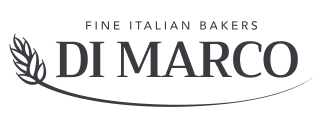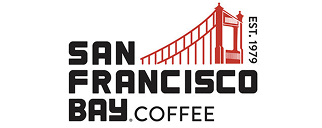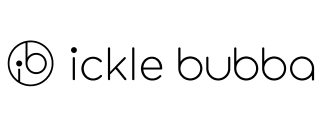Compare label versions and maintain a transparent workflow within your team with smart compliance software like Artwork Flow. Ensure compliance before shipping and avoid costly product recalls.
Compare label versions and maintain a transparent workflow within your team with smart compliance software like Artwork Flow. Ensure compliance before shipping and avoid costly product recalls.
Compare label versions and maintain a transparent workflow within your team with smart compliance software like Artwork Flow. Ensure compliance before shipping and avoid costly product recalls.





.svg)


.png)
.webp)

%204.webp)
.webp)
%202.webp)
.webp)
.webp)
.webp)

.webp)




.webp)
.svg)


.webp)
.webp)








.webp)





.webp)
.webp)
.webp)





.svg)


.png)
.webp)
.svg)
%204.webp)
%202.webp)
.svg)

.svg)

.webp)




.webp)
.svg)


.webp)
.webp)








.webp)





.webp)
.webp)
.webp)





.svg)


.png)
.png)
.png)
.webp)
.svg)
%204.webp)
%202.webp)
.svg)

.svg)

.webp)




.webp)
.svg)


.webp)
.webp)








.webp)





.webp)
.webp)
.webp)





.svg)


.png)
.webp)
.svg)
%204.webp)
%202.webp)
.svg)

.svg)

.webp)




.webp)
.svg)


.webp)
.webp)








.webp)





.webp)
.webp)
.webp)
Spot missing allergens using smart compliance
Add regulatory requirements like allergens, list of ingredients, ‘use by’ date, and more to your custom rulebook and run over the respective label with our compliance module. Get notified about any missing allergen information or warnings, like "contains peanuts" or MoCRA’s newly stated "fragrance allergens” upon screening.

Compare versions for regulatory accuracy
Eliminate manual effort by automating label comparisons, and maintain an audit log for traceability with version control. The AI engine highlights the differences in text and images on labels or legal documents with three comparison modes, saving you time and energy.

Streamline quality checks with checklists
Your Quality Control and R&D teams can create their own detailed checklists to align with various regulatory requirements, such as allergen declarations, storage conditions, nutrition facts, and more. Custom checklists ensure that every step in the label compliance process meets regulatory goals.

Review effortlessly with online proofing tools
Proof over 160 file formats and leave actionable feedback with smart annotations. Proofing tools such as spell check, barcode scanner, and measurement scale let you review text, label dimensions, and product information to send out error-free labels.

Improve team visibility with workflows
With smooth, collaborative workflows, gain transparency across regulatory, marketing, R&D, and quality teams. This brings accountability and speeds up approval processes, reducing delays and inefficiencies.

Other features of Artwork Flow
you might love
Artwork Flow is for the rest of your team too!
Take a break
with our relaxing reads
Frequently asked questions
A creative operations specialist is someone who plays a key role in managing and optimizing
the various processes involved in creative and design projects within a company or brand.
The primary focus of any creative operations specialist is to ensure that creative projects are
launched efficiently, on time, and within budget without compromising brand quality or brand
consistency.
As a creative operations specialist, you would be responsible for coordinating various aspects
of the creative project, such as building creative workflows, collaborating with cross-
functional teams, and implementing best practices to streamline creative management.
As a creative operation specialist, you might be responsible for managing the following tasks:
- Project planning: A creative operations specialist works closely with various teams, such
as design, marketing, and production, to plan and coordinate creative projects. They define
project scopes, objectives, and deliverables, and create detailed project plans and
timelines.
- Workflow optimization: Creative operations specialists design and implement workflows
and processes to improve the efficiency and productivity of creative teams. This could
involve using creative project management software, creating templates, identifying
bottlenecks, and finding ways to optimize the entire creative management process.
- Resource allocation: Creative projects often involve different teams and resources, such
as designers, copywriters, marketers, and more. As a specialist, you might be responsible
for allocating the right resources to the right tasks and making sure that everyone has the
necessary tools and information to complete their work.
- Project tracking and monitoring: They use project management tools to track the progress
of creative projects, monitor deadlines, and ensure that milestones are being met. They
communicate with team members to address any issues that may arise and make
adjustments to keep projects on track. - Communication and collaboration: Effective communication is crucial for any successful
creative project execution. They ensure that everyone is aligned on project goals, timelines,
and expectations and facilitates clear communication between different teams and
stakeholders involved in a project.
- Problem-solving: Creative projects often come with challenges and unexpected obstacles. Specialists use their problem-solving skills to address issues that arise during the project lifecycle, adapting plans as needed to overcome hurdles.

See what Artwork Flow can do for
your brand's creative operations
workflows, tasks, brand assets, design reviews & more.
What can NPD teams do with Artwork Flow?
Version compare
Compare different versions of your labels and launch the right version.
Automate workflows
Collaborate with various teams and fast-track approvals.
Leave annotations
Highlight every error using advanced proofing tools.
How else do regulatory teams benefit from using Artwork Flow?
Real-time notifications
Get notifications for approvals on
time-sensitive projects.
Print inspection
Easily identify pixel deviations between a printed label and the final label.
Version control
Choose the right version of your label and master iterative reviews.
What more can Artwork Flow offer your packaging development team?
Create checklists
Build detailed checklists to verify every single packaging detail.
Compare versions
Track changes by comparing versions using 3 compare modes.
Smart search
Retrieve any asset using AI tags or the filter of your choice.
Frequently asked questions
Regulatory affairs professionals ensure that pharmaceutical products comply with all relevant government regulations throughout the products’ lifecycle. This involves tasks such as:
- Interpreting and understanding complex regulations.
- Advising project teams regarding understanding the rules.
- Preparing and submitting regulatory documents.
- Managing interactions with regulatory agencies.
- Ensuring product safety and efficacy.
It is important to ensure regulatory compliance in your companies and the regulatory affairs must:
- Identify relevant regulations: Determine which regulations suit your products, markets, and operations.
- Develop compliance strategies: Create plans to meet regulatory requirements, including implementing quality systems and conducting necessary testing.
- Monitor and update: Continuously track regulatory changes and adjust compliance strategies accordingly.
- Conduct audits and inspections: Regularly assess compliance through internal audits and external inspections.
- Train employees: Provide employees with materials or conduct workshops to teach them the importance of staying compliant.
Good Manufacturing Practices (GMP) are a set of guidelines that ensure the quality and safety of a product. It requires manufacturers, processors, and packagers of drugs, medical devices, food, and cosmetics to comply with these regulations.
Yes, Artwork Flow's compliance module can help with EU regulatory compliance. It can flag potential issues on your product label related to mislabeling, missing allergen information or recycle logo, ingredients list, and more.
Note that Artwork Flow is a software designed to streamline compliance for brands, not a service providing legal or regulatory advice.
Artwork Flow's compliance module can help prevent costly product recalls by:
- Staying updated with current regulations: You can run automated compliance checks for labeling regulations such as the FDA, EU, FSSAI, and more. This way, you can update your products and stay away from legal complications.
- AI-powered proofing: Smart compliance scans your artwork for any misprints, grammar, and missing information on labels. Catching these errors early prevents the production and distribution of potentially non-compliant products.
- Allergen alert: The AI-powered compliance software flags any missing allergen information on labels, ensuring your consumer’s safety and avoiding costly recalls.
- Barcode scanner: If the barcode information is incorrect or the barcode is invalid, there is a risk of product recall. Our compliance module prevents it by scanning your barcode for any inaccuracy.
Frequently asked questions
Here are some key aspects to ensure every stage of your product launch goes smoothly ultimately leading to a flawless launch.
- Market research: Study your target audience, define the product positioning, understand your competitors, and strategize a pricing plan.
- Efficient supply chain management: Secure sufficient inventory and smooth supply chain operations.
- Agile teamwork environment: Assemble a cross-functional team of product developers, packaging designers, sales, and manufacturers trained to be flexible towards the rapidly growing market.
- Innovation: To stand out from the crowd and create unique experiences, again, study your target market and what works for them. It helps you find gaps and you can use the opportunity to develop ideas and concepts.
- Quality check: At each stage of product development, run rigorous testing, and quality control measures, and check adherence to regulatory standards for an error-free product.
- AI and technology: Incorporating AI into your workflow helps predict the market analysis and automate menial tasks. Project management software such as Artwork Flow can help you seamlessly assign, track, and coordinate various aspects of the launch.
- Launch execution: Effective promotion creates awareness and develops public interest in the product. It includes advertising, public relations, social media marketing, sales promotions, and other marketing activities.
Cross-functional collaboration is crucial in NPD because it fosters a sense of direction and purpose by uniting various departments such as marketing, Research and Development (R&D), design, supply chain, legal, and sales. This collaborative approach helps mitigate several challenges, including:
- Breaking down silos: Prevents teams from missing out on valuable insights and ideas from other departments. This leads to better decision-making and more innovative solutions.
- Project tracking: Facilitates keeping track of multiple projects, tasks, and responsibilities. This transparency ensures accountability and helps in meeting project deadlines on time.
- Workflow design: Helps in designing complex project workflows effectively, reducing the risk of overlooked steps or miscommunication.
- Meeting project specifications and deadlines: Ensures that all teams interpret the brief, avoiding confusion or costly revisions.
- Resource management: Helps to manage and allocate resources such as budget, workforce, and technology efficiently, preventing unnecessary waste.
- Tool usability: Choosing user-friendly project management or design collaboration tools leads to better collaboration and high-quality output.
- Effective feedback: Encourages a structured feedback process where team members can share reviews and insights regularly promoting project quality.
Artwork Flow offers a centralized platform for all stakeholders to access and contribute to label management projects. The platform includes real-time collaboration tools, comment sections, and version history to ensure everyone is aligned. Additionally, user access controls on the platform protect sensitive information while providing visibility to each team.
Artwork Flow provides AI-driven checks for label design errors, regulatory compliance, and brand inconsistencies. The platform also provides a robust proofreading and approval process, reducing the possibility of overlooking errors. In case of creative confusion, Artwork Flow's version control also helps you stay updated with the latest version of your creative, allowing you to launch the right version minimizing the impact of recalls.
Frequently asked questions
The packaging development process includes communication between various teams such as marketing, design, product, regulatory, and manufacturing. Flexible workflows allow you to customize processes to match your team's needs and streamline communication, reducing delays and making project management efficient from start to finish.
Artwork Flow’s workflow management software comes into the packaging development process during the critical stages of design creation, review, and approval. It serves as a central platform for managing workflows, collaborating with teams, ensuring compliance, and easing communication. From the review stage to finalizing compliant artwork, Artwork Flow helps packaging teams avoid packaging errors, accelerate approvals, and ensure smooth execution, making it a vital part of the packaging lifecycle.
In packaging design, PDP stands for Principal Display Panel. It is the part of the packaging that is most likely to be seen by consumers at the time of purchase. The PDP includes essential information such as the product identity, brand logo, quantity, and key features or benefits. It communicates the product's value proposition.
Regulatory guidelines often mandate specific requirements for the PDP, including font size, placement of details, and mandatory labeling elements.
Artwork Flow’s AI-powered label compliance software ensures compliance across various industries, including food and beverages, pharmaceuticals, cosmetics, wineries, and more. You can create custom rulesets and tailor label checks to align with regulatory authorities like the FDA, EU, FSSAI, BPOM, SFDA, etc.





%201.webp)












%20(1).webp)

%20(1).webp)
.webp)

.webp)

.webp)

















.svg)





.webp)
.webp)
.webp)
.webp)
.webp)
.svg)
%20(1).avif)
.webp)







